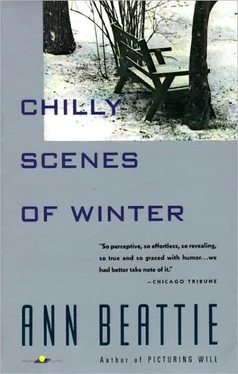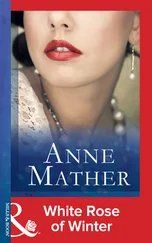Ann Beattie - Chilly Scenes of Winter
Здесь есть возможность читать онлайн «Ann Beattie - Chilly Scenes of Winter» весь текст электронной книги совершенно бесплатно (целиком полную версию без сокращений). В некоторых случаях можно слушать аудио, скачать через торрент в формате fb2 и присутствует краткое содержание. Год выпуска: 1991, Издательство: Vintage, Жанр: Современная проза, на английском языке. Описание произведения, (предисловие) а так же отзывы посетителей доступны на портале библиотеки ЛибКат.
- Название:Chilly Scenes of Winter
- Автор:
- Издательство:Vintage
- Жанр:
- Год:1991
- ISBN:нет данных
- Рейтинг книги:5 / 5. Голосов: 1
-
Избранное:Добавить в избранное
- Отзывы:
-
Ваша оценка:
- 100
- 1
- 2
- 3
- 4
- 5
Chilly Scenes of Winter: краткое содержание, описание и аннотация
Предлагаем к чтению аннотацию, описание, краткое содержание или предисловие (зависит от того, что написал сам автор книги «Chilly Scenes of Winter»). Если вы не нашли необходимую информацию о книге — напишите в комментариях, мы постараемся отыскать её.
Chilly Scenes of Winter — читать онлайн бесплатно полную книгу (весь текст) целиком
Ниже представлен текст книги, разбитый по страницам. Система сохранения места последней прочитанной страницы, позволяет с удобством читать онлайн бесплатно книгу «Chilly Scenes of Winter», без необходимости каждый раз заново искать на чём Вы остановились. Поставьте закладку, и сможете в любой момент перейти на страницу, на которой закончили чтение.
Интервал:
Закладка:
Charles pulls up in front of a Chinese restaurant, The Blue Pagoda. There is hardly anybody inside. Two booths and two tables have been taken. The ashtrays on all the tables are blue. There is a small paper umbrella stuck in the top of the salt shaker. The waiter quickly removes it when he puts down the menus. When he returns he has blue napkins and chopsticks. They order: pork-fried rice, moo-shu pork, spareribs. “No egg drop?” the waiter says. “Egg drop,” Charles says. “No egg drop?” the waiter says. “Wonton?” “That will be fine,” Charles says. Faintly, Charles can hear Donovan singing “Mad John.” It’s so faint that it might be Muzak, not Donovan at all. And Charles might be imagining that the words are being sung. A couple with a child comes in and sits at the booth in back of them. “This is a German restaurant,” the father says to the little girl. “It’s Chinese!” the little girl says. “If they don’t have sauerbrauten, you’ll just have to suffer,” the father says. “Sit up straight,” the mother says.
“Wonton?” the waiter says, putting the bowls in front of them.
“That’s right,” Charles says.
“Just made fresh?” the waiter says.
“Fine,” Charles says. The waiter only knows how to speak in the interrogative.
“You eat Chinese food with Doctor Mark?” Charles asks.
“I don’t think we’ve ever gone to a Chinese restaurant.”
“I thought that was what people who were in love did.”
“What?” Susan says.
“Listen to music, go to Chinese restaurants … that kind of stuff.”
“You always pretend not to know about things. You’re in love with that woman. Do the two of you go to Chinese restaurants?”
“She eats with her husband.”
“When she wasn’t with him. You always pretend that that time didn’t exist.”
“I don’t want to talk about her tonight,” Charles says. “I know she’s not going to call.”
Susan slowly sips soup. “I feel sort of bad about leaving you,” she says.
“Why?”
“Oh, I don’t know. That woman’s sort of rotten to you, and I’ll be leaving you with Sam sick. And her in the hospital.”
“Your staying wouldn’t make Laura leave her husband or Sam get well, and it certainly wouldn’t spring her from the bin.” Charles doesn’t want her to leave.
“I guess you’re right. Are you going to be polite to him when he comes?”
“What do you think I’d do? Act like some outraged lover?”
“I’m afraid you’ll make wisecracks. I know you don’t want him to like you.”
“I don’t think there’s much chance of that.”
“You always put yourself down. You always act dejected.”
“I’m a mess.”
She laughs, sucking spinach into her mouth.
“Hot?” the waiter says, putting the plates in front of them. He puts the dishes on the table, puts his hands on his hips, and says, “Okay?”
“Fine,” Charles says. “Thank you.”
“Thank you?” the waiter says, leaving. He stops at the next table. “You’re not German!” the little girl says.
Once he and Laura went to a Spanish restaurant where the waiters poured a thin stream of white wine into their mouths from a leather wineskin. They ordered saffron rice and mussels and ate large, dark rolls. Laura told him that food started tasting entirely different to her after she stopped wearing lipstick. He wishes he could do something that would make him enjoy his food more. He eats all the time, but most of the time he hardly tastes it. His grandmother used to serve chicken bouillon before the Sunday dinner to “make the tongue buds blossom.” She always invoked strange metaphors: “Think if the earth were a big shoe and all that snow coming down was shoe polish.” To this day, he feels that snow is a call to action.
“I was thinking about Grandma,” Charles says.
“I don’t remember her very well.”
“I remember her smelling things. She always had her nose in the steam from a soup pot, she always thought their cat smelled bad, even when Grandfather had caught it and washed it, she always wore heavy perfume. What do you remember about her?”
“That her drawers were full of magazines she tied together in bundles and that she never untied the bundles. She always had things tied together. She’d tie two packages of paper napkins together with twine and put it on the kitchen shelf.”
“She was nice,” Charles says.
“Yeah. She was very nice. I remember that blue and lavender dress she made me. When it was washed the colors ran and made the lace blue, and she cut it all off and sewed white lace on.”
Their grandmother died in her seat at a movie theater. There was a special movie about Greece. Men were there to show the movie and talk the audience into going to Greece. Everyone in the audience knew that she had died, and afterwards, their mother heard, more people than the men expected signed up on the spot for the trip to Greece. She was sixty-eight when she died. Their grandfather died two years and one day later. He was crossing the street with a bottle in a brown bag and a loaf of bread in another brown bag when a truck hit him. The truck was full of wheelbarrows that it was on the way to deliver to a hardware store.
“Almond cookie?” the waiter says, putting down a plate with four cookies on it.
“Tomorrow we’ve got to go see her, don’t we?”
“Yeah. I’m not looking forward to running into Pete. He called today and told me I was a son of a bitch.”
“He did not.”
“He did. He said that I made him feel guilty. He called back and apologized.”
“Was he drunk or something?”
“I guess so. I don’t blame him.”
“These are good,” Susan says. “Almonds are supposed to keep away cancer.”
“I thought that was apricot pits.”
“Maybe you’re right,” Susan says, crunching into the second cookie.
“I saw a picture in a magazine of some Mexican doctor who injects people with apricot-pit extract. People go there and live in trailers and get injections. I hope if I get sick I don’t get crazy like that.”
“If I had it, I’d do anything. I’d go to Lourdes. I’d do anything.”
“How the hell did we get started talking about this?”
“I probably started it. I’m so used to talking about diseases all the time with Mark.”
“What conclusions has he come to?”
“You’re not going to be nice to him, are you?”
“I told you I was. He’s just a jackass.”
“One of the doctors he knows has a theory that the cells react to music. He’s trying to get a grant to play music to diseased cells.”
“I’m sure hell get it. There are a lot of jackasses out there waiting to give other jackasses money.”
“You’re so smart,” Susan says.
“I’m not so smart. I’m just not a jackass.”
“Are you sure it’s okay for me to leave?”
“Sure,” he says. “What color is the Cadillac?”
“Maroon.”
“Maroon. Jesus Christ.”
They pay the bill and leave The Blue Pagoda. It is bitter cold, and nobody is on the street. Charles drives down to the newsstand across from the train station and gets the late paper. A baby is on the cover: “First of 1975.” He looks at the weather forecast, holding the paper near the floor so that the car light shines on it. Snow. He does not want to go back to work. He wants the car to hurry up and get warm. When they get home Sam is still asleep. On the note on the television is written: “Pete called.”
“I forgot to get him food,” Charles says to Susan.
“He’s out for the night,” Susan says.
“Should we try to wake him up to see if he’s alive?”
“No,” she says. “He’s okay.”
Читать дальшеИнтервал:
Закладка:
Похожие книги на «Chilly Scenes of Winter»
Представляем Вашему вниманию похожие книги на «Chilly Scenes of Winter» списком для выбора. Мы отобрали схожую по названию и смыслу литературу в надежде предоставить читателям больше вариантов отыскать новые, интересные, ещё непрочитанные произведения.
Обсуждение, отзывы о книге «Chilly Scenes of Winter» и просто собственные мнения читателей. Оставьте ваши комментарии, напишите, что Вы думаете о произведении, его смысле или главных героях. Укажите что конкретно понравилось, а что нет, и почему Вы так считаете.












